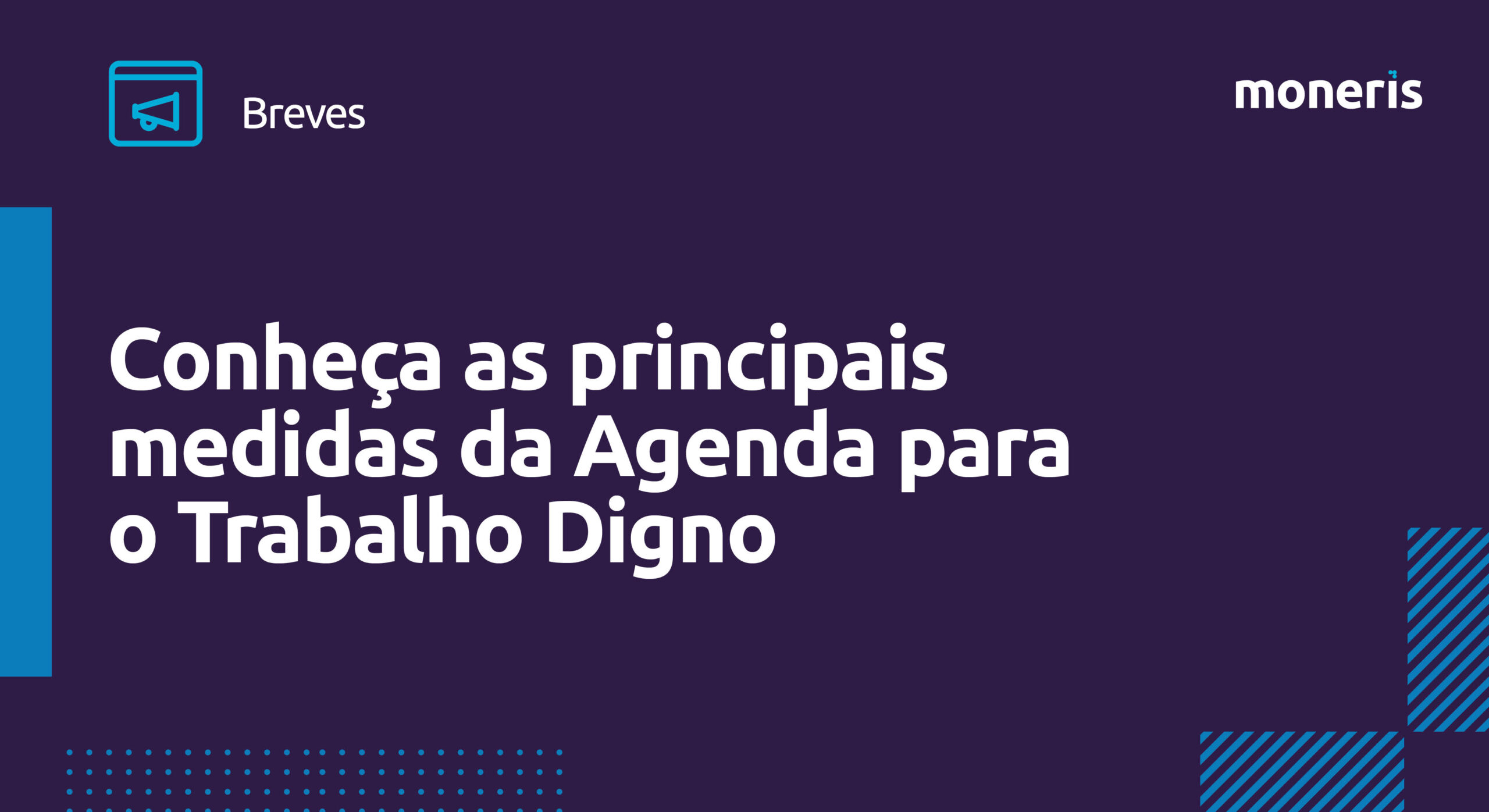The growing challenges of the labor market, combined with the defense of Decent Work by the UN and the European Union, led to the approval of several changes to labor legislation in Portugal, with the publication of Law no. 13/2023, of April 3.
The Decent Work Agenda was the subject of discussion for about two years and served as the motto for the Green Paper for the Future of Work, to which the Moneris Technical Labour Committee contributed about 50 proposals during the public discussion phase.
In order to facilitate the understanding of these changes to the Labour Code, we share some relevant measures of the Decent Work Agenda, in a simplified and non-exhaustive way:
Parental leave
- The father’s exclusive parental leave is increased from 20 to 28 consecutive days
- There will be an increase in the allowance when parental leave is shared equally between father and mother, and from 120 days on, the leave can be used part-time by both parents, increasing the total duration
- Waivers and licenses are extended to those who want to adopt or be a host family
Death licenses
- The leave due to the death of the spouse is increased from 5 to 20 days
- Gestationary bereavement leave (for the death of the baby during pregnancy) is created, which can go up to 3 days
Medical casualties
- Medical sick leave can be passed by the NHS24, without resorting to a consultation in the hospital or health center, and can be requested up to a maximum of 3 days, twice a year
Professional Internships and Employment Contracts
- The remuneration of professional internships becomes at least 80% of the national minimum wage
- Young workers/students can accumulate family allowance and scholarships with salary
- The duration of temporary contracts now has ceilings and can only be renewed up to four times
- Workers on digital platforms (transport and delivery platforms, such as TVDE) can be considered employees upon presumption of employment contract
Telework
- The right to telework, without the need for agreement, is extended to parents with children with disabilities, chronic diseases or oncological diseases
Informal caregivers
- Non-primary informal caregivers now have a five-day leave and the right to 15 days of excused absences
- Informal caregivers now have the right to telework, flexible hours or part-time
Trial period
- If the employer does not inform the employee of the duration and conditions of the probationary period, if applicable, the parties shall be presumed to have agreed to the exclusion of the probationary period
- The probationary period for persons seeking their first job and long-term unemployed shall be reduced or excluded according to whether the duration of a previous fixed-term employment contract concluded with a different employer was 90 days or more
- The probationary period is reduced depending on the duration of the professional internship with positive evaluation, for the same activity and different employer, has been equal to or greater than 90 days, in the last 12 months
- When the trial period lasts more than 120 days, the termination of the contract by the employer depends on 30 days’ notice
Overtime work
- Supplementary work exceeding 100 hours per year is paid by the value of the hourly remuneration with the following additions:
- 50 % for the first hour or fraction thereof and 75 % per hour or subsequent fraction on a working day
- 100 % for each hour or fraction on a weekly, compulsory or supplementary day of rest or on a public holiday
A careful reading of the diploma is recommended, due to the extent of the changes, as well as the proper advice and specialized advice.
- Law no. 13/2023, of 3 April
- Comparative table of COLABOR – Collaborative Laboratory for Work, Employment and Social Protection
- FAQ published on the Government Portal
How can Moneris help?
Administrative management within the scope of human resources management requires a high level of technical expertise and constant updating.
The Moneris Labor Technical Committee brings together the skills of specialized professionals in the different perspectives of the labor area, from the legal, formal and declarative component, to the procedures and their operationalization, actively participating in the training and valorization of the group’s human resources teams and in conducting compliance audits to Moneris clients.
If you would like more information or clarification about the Decent Work Agenda and the practical implications for your Organisation, please contact your Moneris manager or use the usual means of communication: info@moneris.pt | +351 210 316 400.
